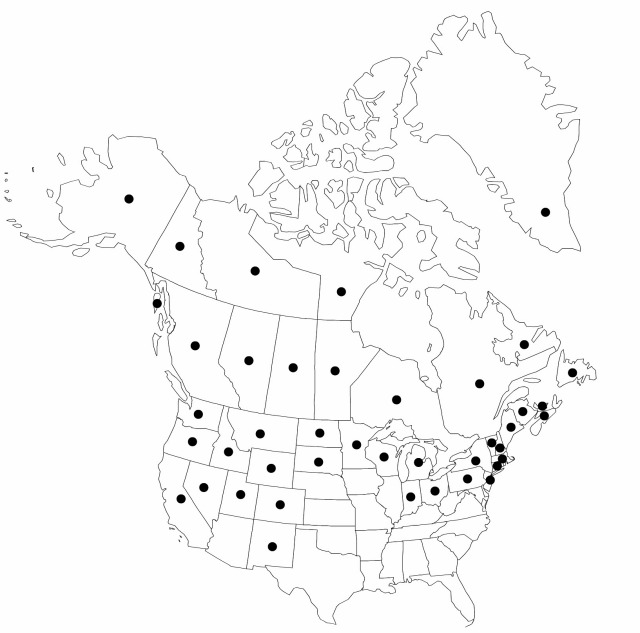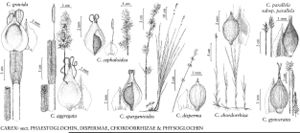Difference between revisions of "Carex disperma"
Amer. J. Sci. Arts 8: 266. 1824.
FNA>Volume Importer |
imported>Volume Importer |
||
| (4 intermediate revisions by 2 users not shown) | |||
| Line 8: | Line 8: | ||
}} | }} | ||
|common_names=Carex disperme | |common_names=Carex disperme | ||
| + | |special_status={{Treatment/ID/Special_status | ||
| + | |code=F | ||
| + | |label=Illustrated | ||
| + | }} | ||
|basionyms= | |basionyms= | ||
|synonyms={{Treatment/ID/Synonym | |synonyms={{Treatment/ID/Synonym | ||
|name=Carex tenella | |name=Carex tenella | ||
|authority=Schkuhr | |authority=Schkuhr | ||
| + | |rank=species | ||
}} | }} | ||
|hierarchy=Cyperaceae;Carex;Carex sect. Dispermae;Carex disperma | |hierarchy=Cyperaceae;Carex;Carex sect. Dispermae;Carex disperma | ||
| Line 35: | Line 40: | ||
-->{{#Taxon: | -->{{#Taxon: | ||
name=Carex disperma | name=Carex disperma | ||
| − | |||
|authority=Dewey | |authority=Dewey | ||
|rank=species | |rank=species | ||
| Line 49: | Line 53: | ||
|publication title=Amer. J. Sci. Arts | |publication title=Amer. J. Sci. Arts | ||
|publication year=1824 | |publication year=1824 | ||
| − | |special status= | + | |special status=Illustrated |
| − | |source xml=https:// | + | |source xml=https://bitbucket.org/aafc-mbb/fna-data-curation/src/2e0870ddd59836b60bcf96646a41e87ea5a5943a/coarse_grained_fna_xml/V23/V23_517.xml |
|genus=Carex | |genus=Carex | ||
|section=Carex sect. Dispermae | |section=Carex sect. Dispermae | ||
Latest revision as of 20:41, 5 November 2020
Plants with loose, branching system of slender, pale brown rhizomes. Culms very slender, nodding, 15–60 cm, exceeding leaves, scabrid. Leaves: basal sheaths pale brown abaxially, inner band white-hyaline, truncate at summit; ligules broader than long; blades mid to dark green, flat, 15–30 × 0.75–1.5 mm, scabrid. Inflorescences 1.5–2.5 cm × 3–5 mm; proximal bract 5–20 mm; distal bracts scalelike. Spikes 2–4(–5), proximal separate, distal aggregate, globose, 3–5 × 2–4 mm. Pistillate scales white-hyaline with green center, ovate, narrower and shorter than perigynia, apex acuminate. Perigynia 1–6, pale green, often brown or even purplish in age, plump, 2.25–3 × 1.3–1.5 mm, membranous, shiny. Achenes red-brown, oblong-elliptic, 1.5–1.75 × 1 mm, glossy. 2n = 70.
Phenology: Fruiting May–Aug.
Habitat: Swamps, bogs, wet meadows, mossy and shady coniferous woods
Elevation: 0–3500 m
Distribution

Greenland, Alta., B.C., Man., N.B., Nfld. and Labr., N.W.T., N.S., Ont., P.E.I., Que., Sask., Yukon, Alaska, Calif., Colo., Conn., Idaho, Ind., Maine, Mass., Mich., Minn., Mont., Nev., N.H., N.J., N.Mex., N.Y., N.Dak., Ohio, Oreg., Pa., S.Dak., Utah, Vt., Wash., Wis., Wyo., Eurasia.
Discussion
Selected References
None.
